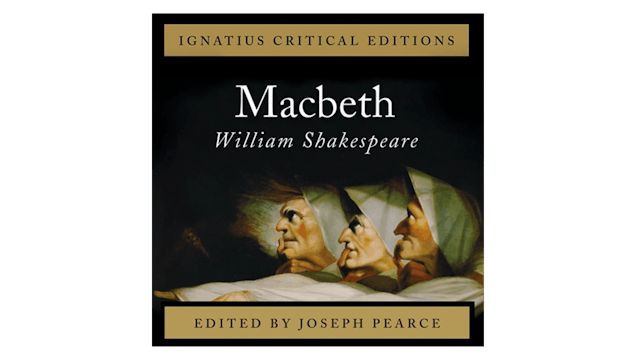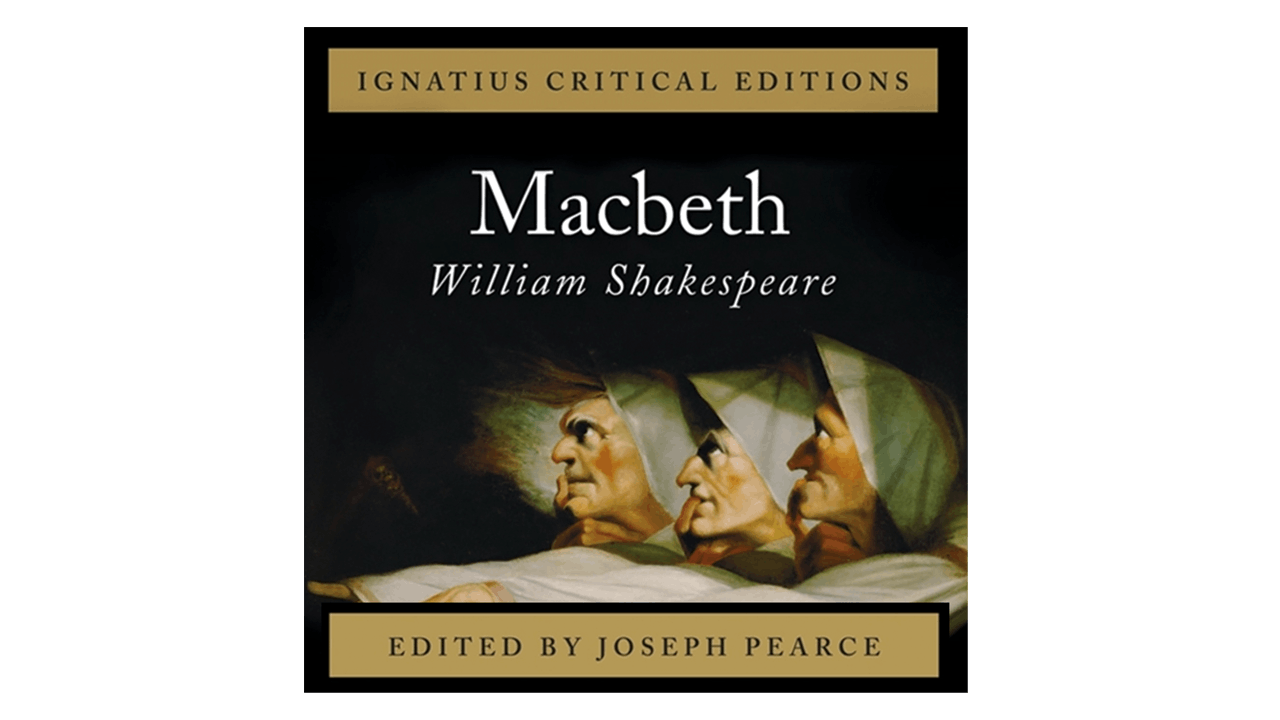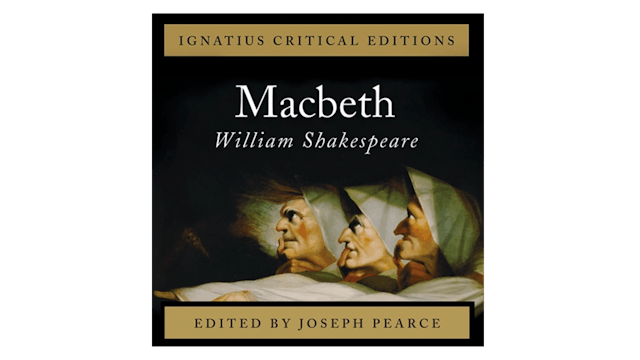Macbeth by William Shakespeare and ed. by Joseph Pearce
Arguably the darkest of all Shakespeare’s plays, Macbeth is also one of the most challenging. Is it a work of nihilistic despair, “a tale told by an idiot, full of sound and fury, signifying nothing”, or is it a cautionary tale warning of the dangers of Machiavellianism and relativism? Does it lead to hell and hopelessness, or does it point to a light beyond the darkness? This critical edition of Shakespeare’s classic psychological drama contains essays by some of today’s leading critics, exploring Macbeth as a morality play, as a history play with contemporary relevance, and as a drama that shows a vision of evil and that grapples with the problem of free will.
The Ignatius Critical Editions represent a tradition-oriented alternative to popular textbook series such as the Norton Critical Editions or Oxford World Classics, and are designed to concentrate on traditional readings of the Classics of world literature. Whereas many modern critical editions have succumbed to the fads of modernism and post-modernism, this series will concentrate on tradition-oriented criticism of these great works. Edited by acclaimed literary biographer, Joseph Pearce, the Ignatius Critical Editions will ensure that traditional moral readings of the works are given prominence, instead of the feminist, or deconstructionist readings that often proliferate in other series of 'critical editions'. As such, they represent a genuine extension of consumer-choice, enabling educators, students and lovers of good literature to buy editions of classic literary works without having to 'buy into' the ideologies of secular fundamentalism. The series is particularly aimed at tradition-minded literature professors offering them an alternative for their students. The initial list will have about 15 - 20 titles. The goal is to release three books a season, or six in a year.
-
Macbeth by William Shakespeare, audio book, ed. by Joseph Pearce
Arguably the darkest of all Shakespeare’s plays, Macbeth is also one of the most challenging. Is it a work of nihilistic despair, “a tale told by an idiot, full of sound and fury, signifying nothing”, or is it a cautionary tale warning of the dangers of Machiavellianism and relativism? Does it le...



